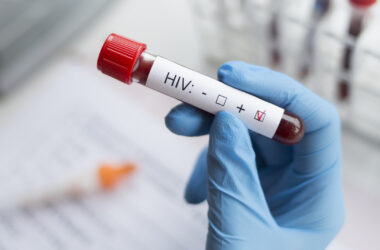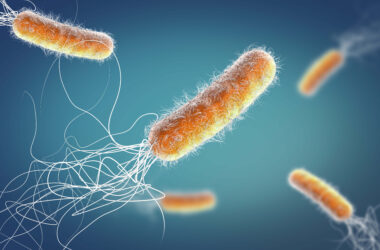Allergies always seemed so simple: Here’s a list of foods and environmental factors that you should avoid, since your body treats them like enemies.
Dr. Christine McCusker, an associate professor in the Faculty of Medicine at McGill, is the Director of the Division of Allergy & Immunology at the Montreal Children’s Hospital. She pointed out that, 30 years ago, the predominant idea to explain allergies was that the body treats allergens as enemies when they are really ‘innocent.’ However, since that time, researchers have discovered that the immune system is always responding to intruders. In the case of allergies, it activates the ‘threatening’ response for some people and the ‘non-threatening’ response for others.
“In fact, if I eat a nut [and] I’m not allergic, my immune system [still] activates, recognizes what I’m eating, and makes an immune response,” McCusker said. “[…. The] type of immune response it makes is different from the type that you make. So instead of an on-off switch, you make [an allergic response, or] you don’t make [an allergic response], it’s actually a toggle switch [….] You go left, you go right.”
Though our typical surroundings in Canada are far cleaner and more hygienic than they were in, say, the 19th century, many allergists believe that the presence of parasites has led some bodies to create this kind of allergic response.
“If you now have a Godzilla against a human being, which is kind of the scale of difference of what a parasite will look like to the little white blood cells that is trying to fight it, your normal methods of killing or suppressing or getting rid of [it are] not going to work very well,” McCusker said. “So we actually have a system that promotes a certain population of white blood cells that […] are ‘bombers.’ And what they do is, when they’re activated properly, they run over to the microbe, and they log bombs at it. And the microbe becomes very unhappy and or dies, and it’s problem solved.”
When allergic patients trigger that immune system response, their body activates histamine, a chemical involved in immune response and physiological function. Signs and symptoms of allergic reactions include hives and swelling, both of which arise from an abundance of histamine.
McCusker and many other allergists believe that allergies develop in the first few years of life as a result of a change in environment after birth. For example, when proteins irritate a child’s skin and cause eczema, or visible irritation of the skin, the body learns to respond to these same proteins when they are ingested in foods later in life.
Anaphylaxis is a commonly used term to describe a severe and potentially deadly allergic reaction. According to McCusker, the likelihood of death from anaphylaxis for allergic patients is around the same as a lightning strike, and it is difficult to predict.
“Unfortunately, I can’t tell you [by] looking at you,” McCusker said. “Are you the person who’s going to walk into that restaurant, have an accidental exposure, and die? Or are you going to walk into that restaurant, have an accidental exposure, get an itchy mouth, have a few hives, feel like crap, and have to use your EpiPen?”
McCusker urges allergic patients who have been prescribed an EpiPen to always carry it with them, whether or not they plan to eat anything. EpiPens contain epinephrine, a hormone that narrows blood vessels and opens airways, helping to temporarily reverse the signs and symptoms of an allergic reaction.
Ultimately, McCusker concluded that it is important for those with allergies to tell their friends about how serious their allergies can be.
“One of the biggest problems […] that people […] who have allergies [get wrong] is […] being nervous about disclosing their allergies [and] to talk to friends and say ‘Listen, if I’m not feeling well, you’re coming with me,’” McCusker said.








